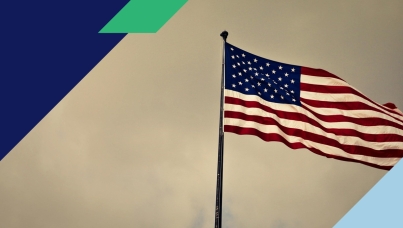Across 29 countries, attitudes towards U.S.-made products vary
Washington DC, June 13 – A new Ipsos poll finds that less than half of respondents across 29 countries say they are likely to buy something manufactured in the United States. More respondents say they are likely to buy something manufactured or produced in the European Union, Japan, and China compared to U.S.-made goods. Americans are the most likely to say they are willing to buy U.S.-made goods, while Canadian respondents are the least likely.
Key findings:
- Respondents surveyed in 29 countries say they are most likely to buy something that was produced or manufactured in the European Union (60%), followed by Japan (59%) and China (57%).
- Just under half of respondents say they are likely to buy products made in the United States (44%), followed by Vietnam (43%), South Africa (36%), and Canada (25%). Attitudes towards U.S. made products are polarizing, with 37% saying they are unlikely to buy products made in the U.S.
- A strong nationalist sentiment is prevalent in North America, with majorities in Canada (85%) and the United States (72%) saying they are likely to buy products made in their own country.
- Out of all 29 countries, Canadian respondents are the most negative towards U.S.-made goods. One in four (25%) say they are likely to buy U.S.-made products, while 63% say they are unlikely to buy U.S.-made products.
- China dominates in Southeast Asia, with majorities in Malaysia (86%), Indonesia (82%) and Thailand (72%) saying they are likely to purchase China-made products.
About the study
These are the results of a 29-country survey conducted by Ipsos on its Global Advisor online platform and, in India, on its IndiaBus platform, between Friday, April 25, and Friday, May 9, 2025. For this survey, Ipsos interviewed a total of 22,734 adults aged 18 years and older in India, 18-74 in Canada, Republic of Ireland, Malaysia, South Africa, Türkiye, and the United States, 20-74 in Thailand, 21-74 in Indonesia and Singapore, and 16-74 in all other countries.
The sample consists of approximately 1,000 individuals each in Australia, Belgium, Brazil, Canada, France, Germany, Great Britain, Italy, Japan, Spain, and the U.S., and 500 individuals each in Argentina, Chile, Colombia, Hungary, Indonesia, Ireland, Malaysia, Mexico, the Netherlands, Peru, Poland, Singapore, South Africa, South Korea, Sweden, Thailand, and Türkiye. The sample in India consists of approximately 2,200 individuals, of whom approximately 1,800 were interviewed face-to-face and 400 were interviewed online.
Samples in Argentina, Australia, Belgium, Canada, France, Germany, Great Britain, Hungary, Italy, Japan, the Netherlands, Poland, South Korea, Spain, Sweden, and the U.S. can be considered representative of their general adult populations under the age of 75. Samples in Brazil, Chile, Colombia, Indonesia, Ireland, Malaysia, Mexico, Peru, Singapore, South Africa, Thailand, and Türkiye are more urban, more educated, and/or more affluent than the general population. The survey results for these countries should be viewed as reflecting the views of the more “connected” segment of their population.
India’s sample represents a large subset of its urban population — social economic classes A, B and C in metros and tier 1-3 town classes across all four zones.
The data is weighted so that the composition of each country’s sample best reflects the demographic profile of the adult population according to the most recent census data. “The Global Country Average” reflects the average result for all the countries and markets in which the survey was conducted. It has not been adjusted to the population size of each country or market and is not intended to suggest a total result.
When percentages do not sum up to 100 or the ‘difference’ appears to be +/-1 percentage point more/less than the actual result, this may be due to rounding, multiple responses, or the exclusion of “don't know” or not stated responses.
The precision of Ipsos online polls is calculated using a credibility interval with a poll where N=1,000 being accurate to +/- 3.5 percentage points and of where N=500 being accurate to +/- 5.0 percentage points. For more information on Ipsos' use of credibility intervals, please visit the Ipsos website.
About Ipsos
Ipsos is one of the largest market research and polling companies globally, operating in 90 markets and employing nearly 20,000 people.
Our passionately curious research professionals, analysts and scientists have built unique multi-specialist capabilities that provide true understanding and powerful insights into the actions, opinions and motivations of citizens, consumers, patients, customers or employees. Our 75 business solutions are based on primary data from our surveys, social media monitoring, and qualitative or observational techniques.
“Game Changers” – our tagline – summarizes our ambition to help our 5,000 clients navigate with confidence our rapidly changing world.
Founded in France in 1975, Ipsos has been listed on the Euronext Paris since July 1, 1999. The company is part of the SBF 120, Mid-60 indices, and is eligible for the Deferred Settlement Service (SRD).
ISIN code FR0000073298, Reuters ISOS.PA, Bloomberg IPS:FP
35 rue du Val de Marne
75 628 Paris, Cedex 13 France
Tel. +33 1 41 98 90 00



